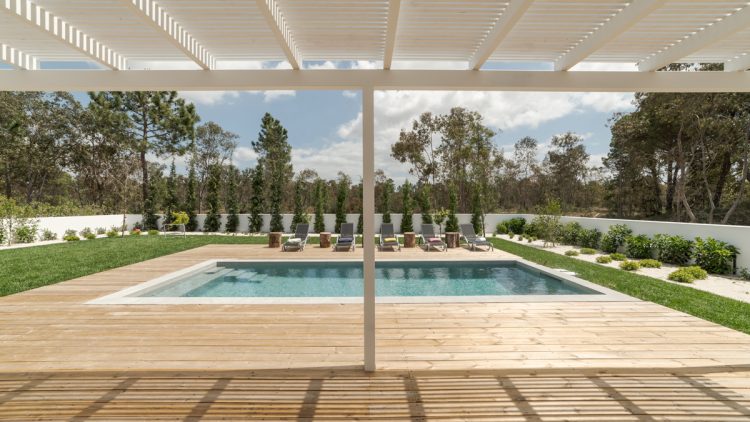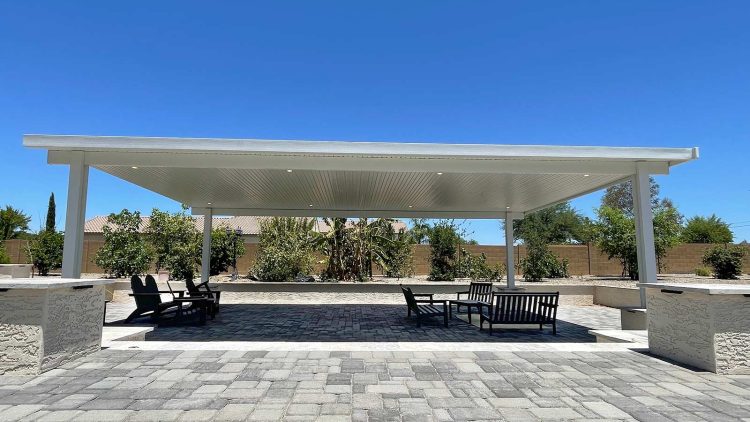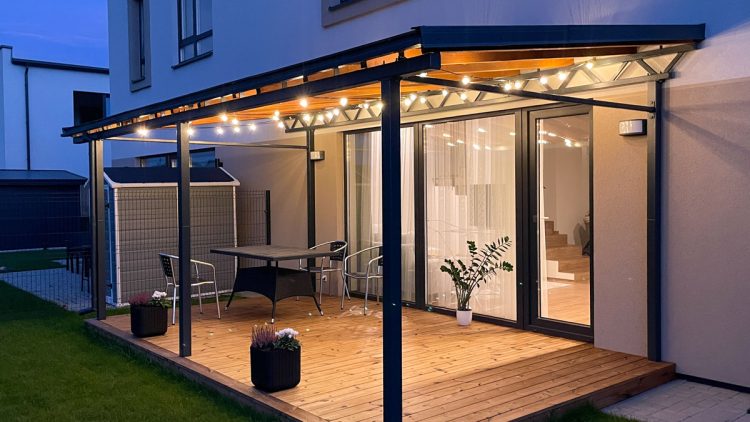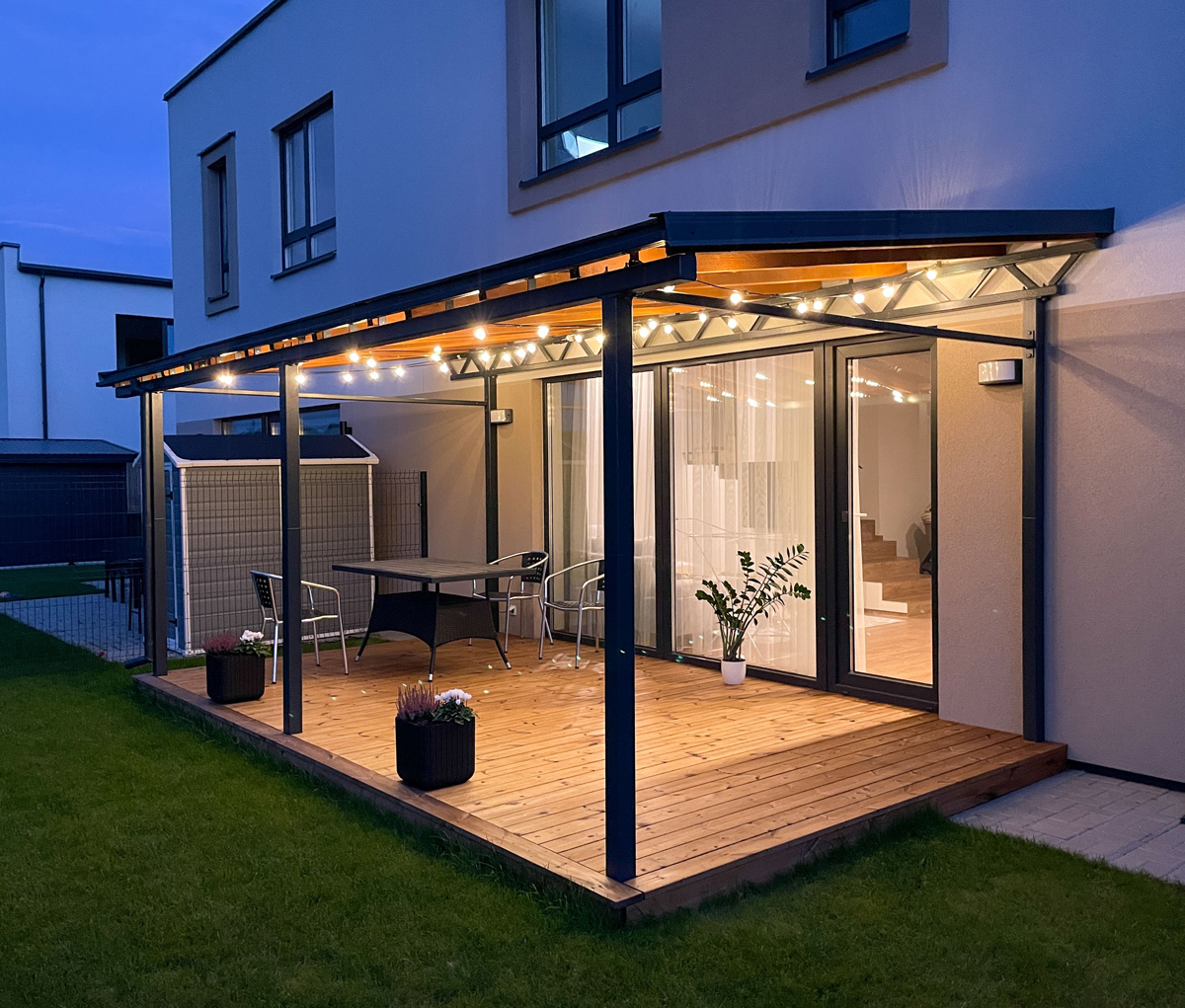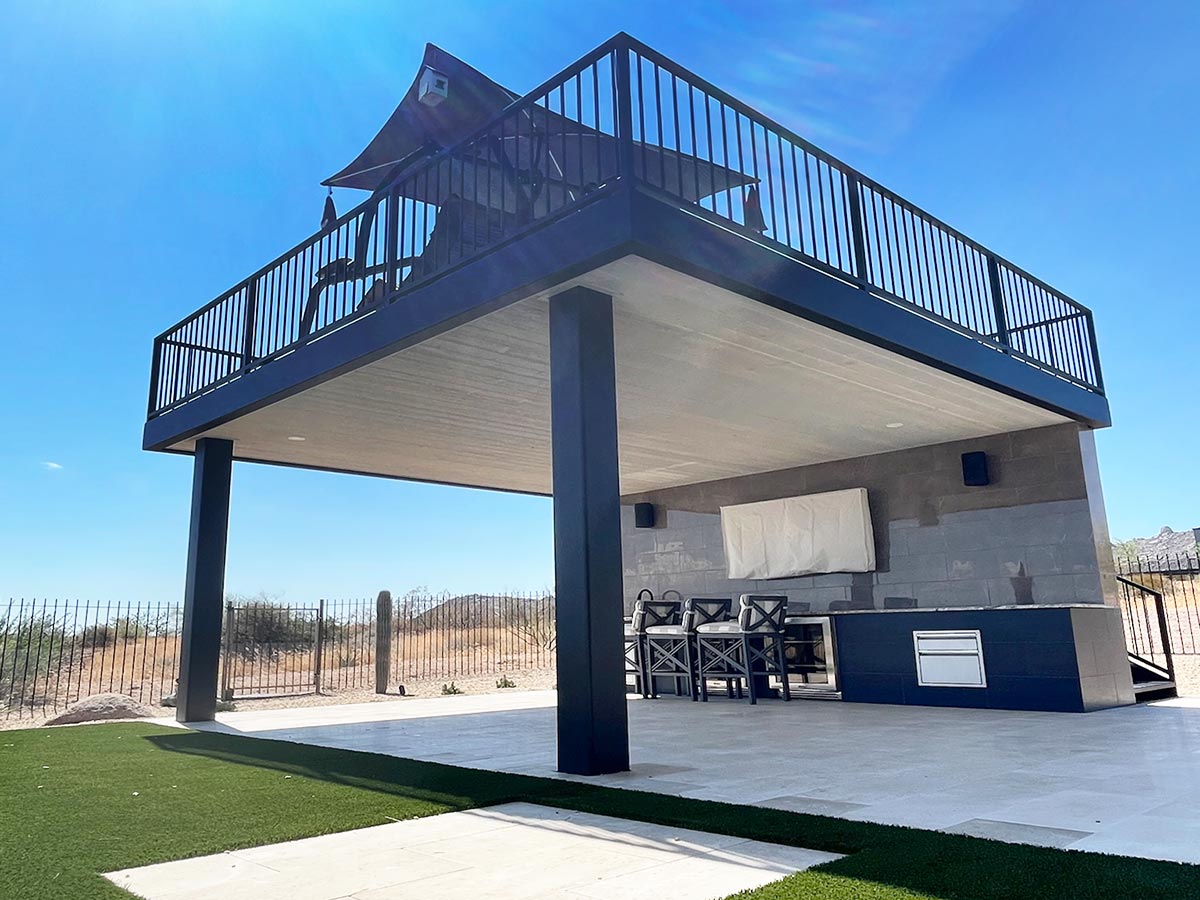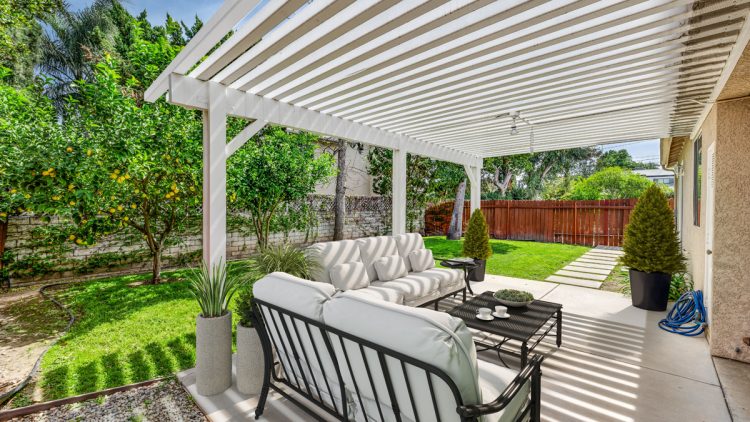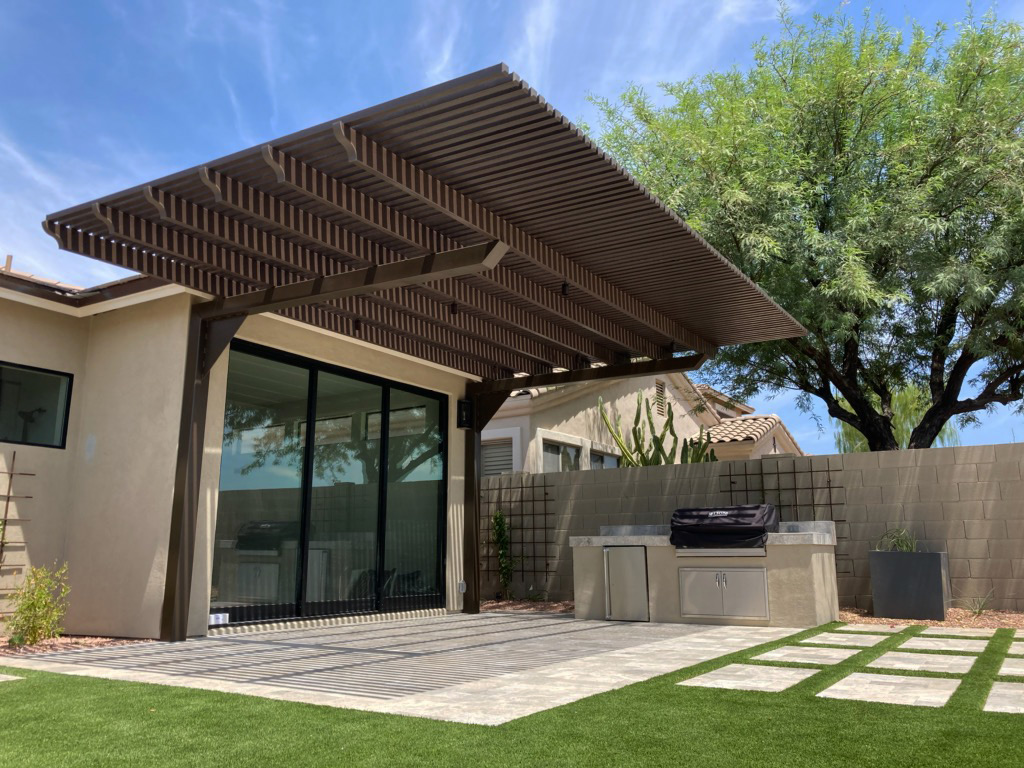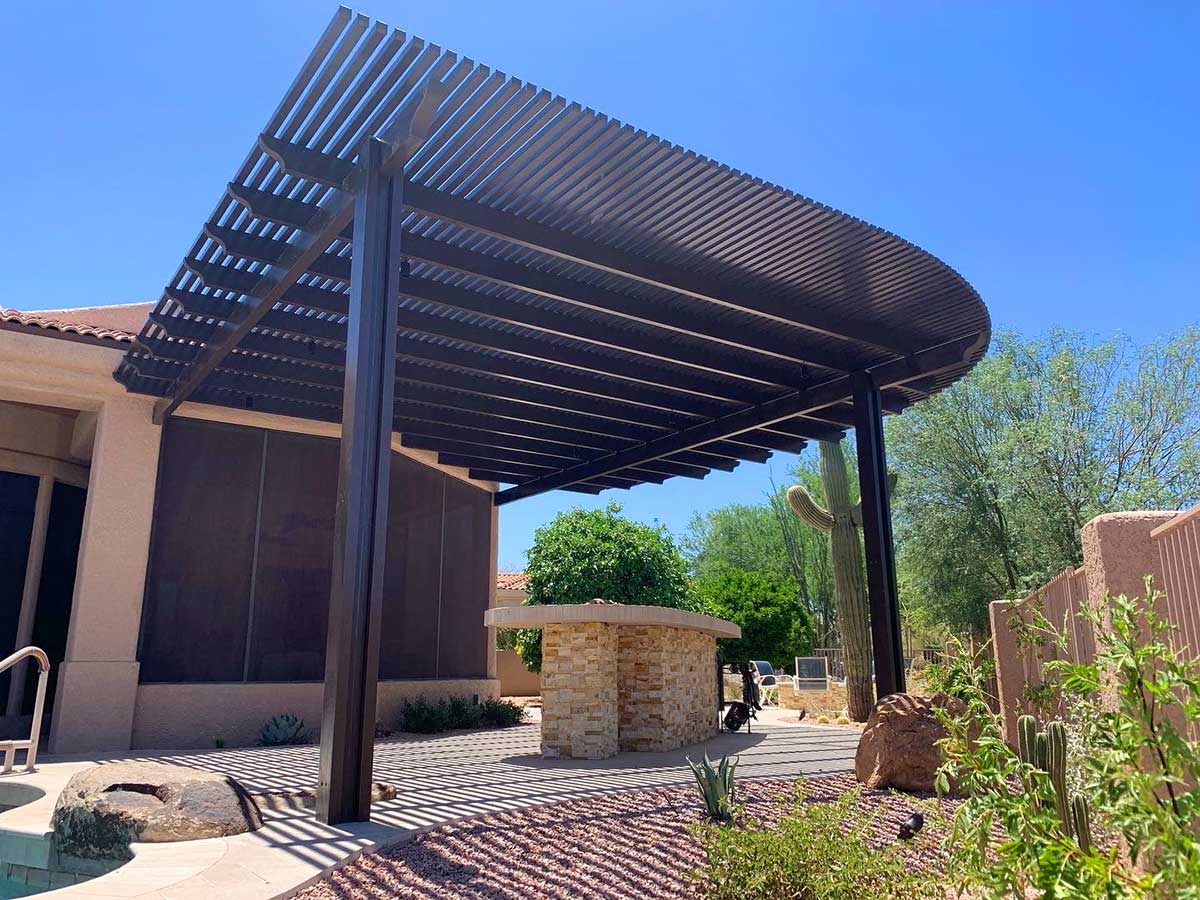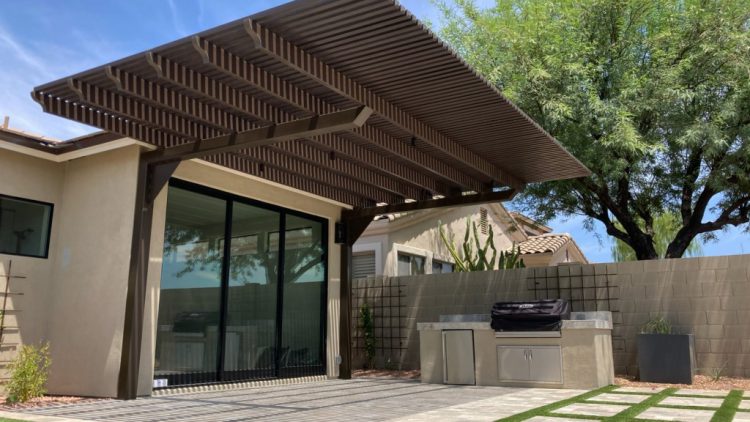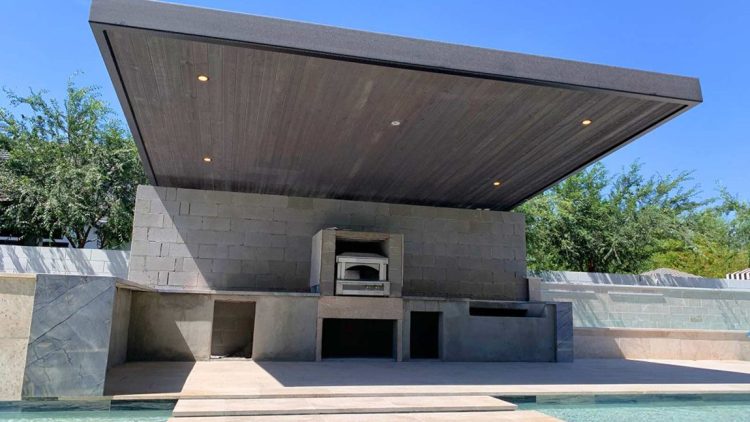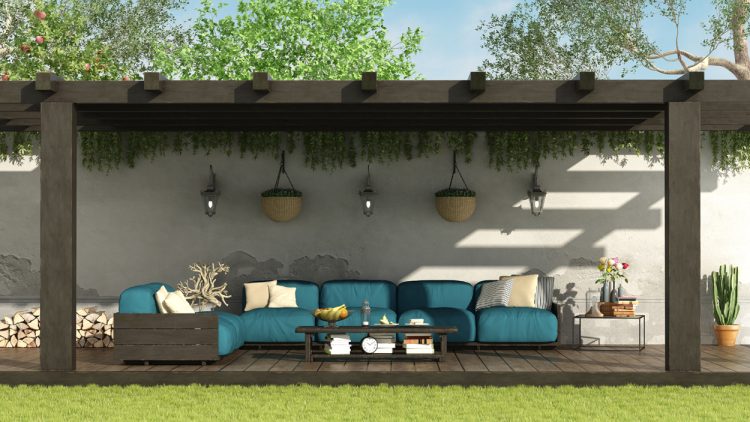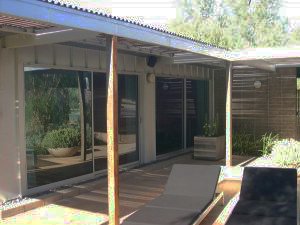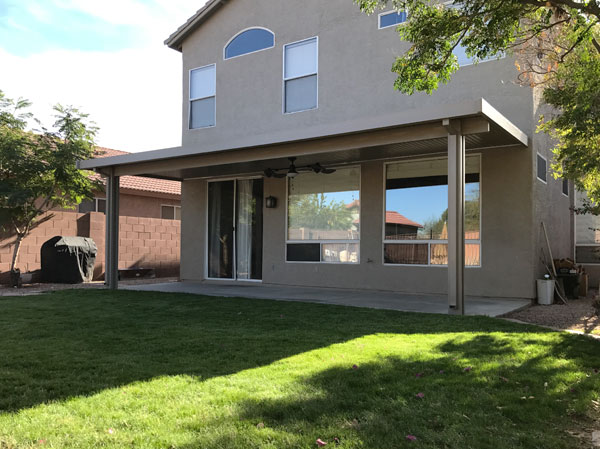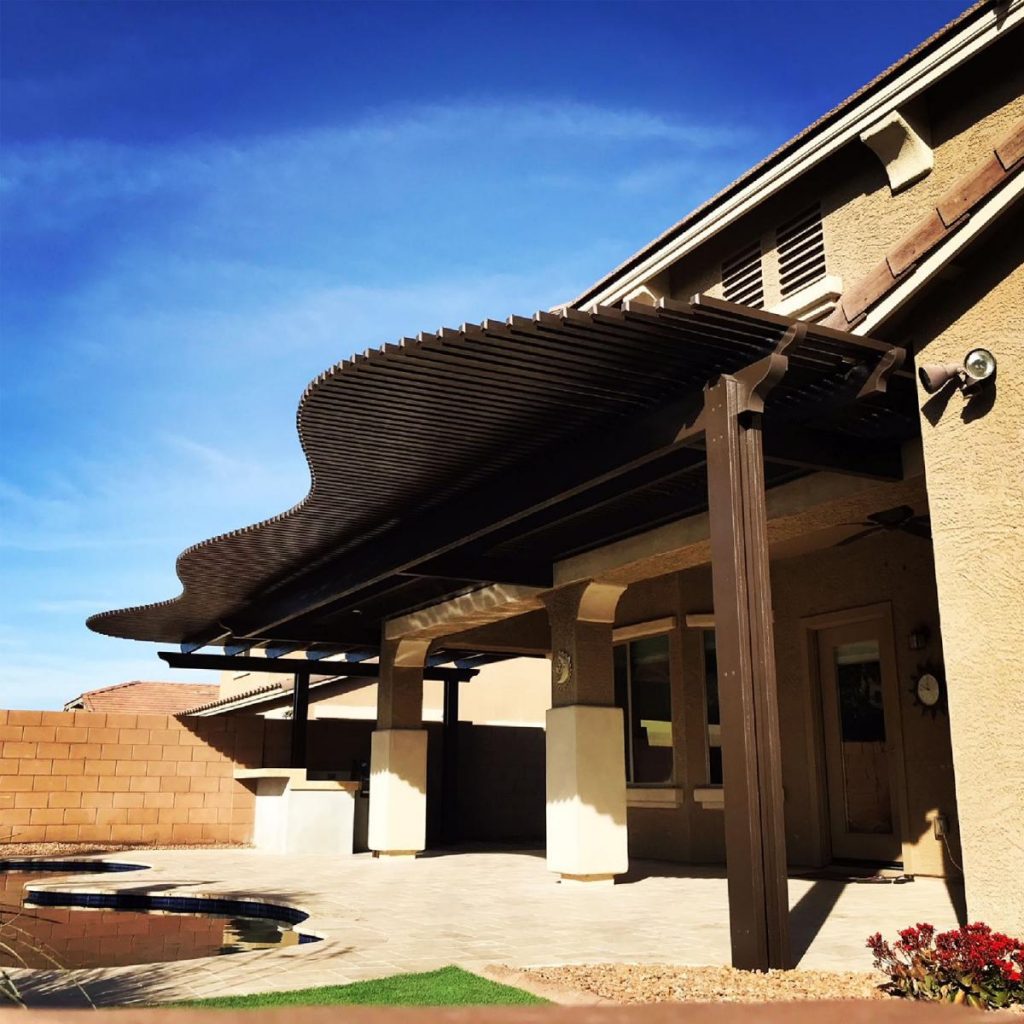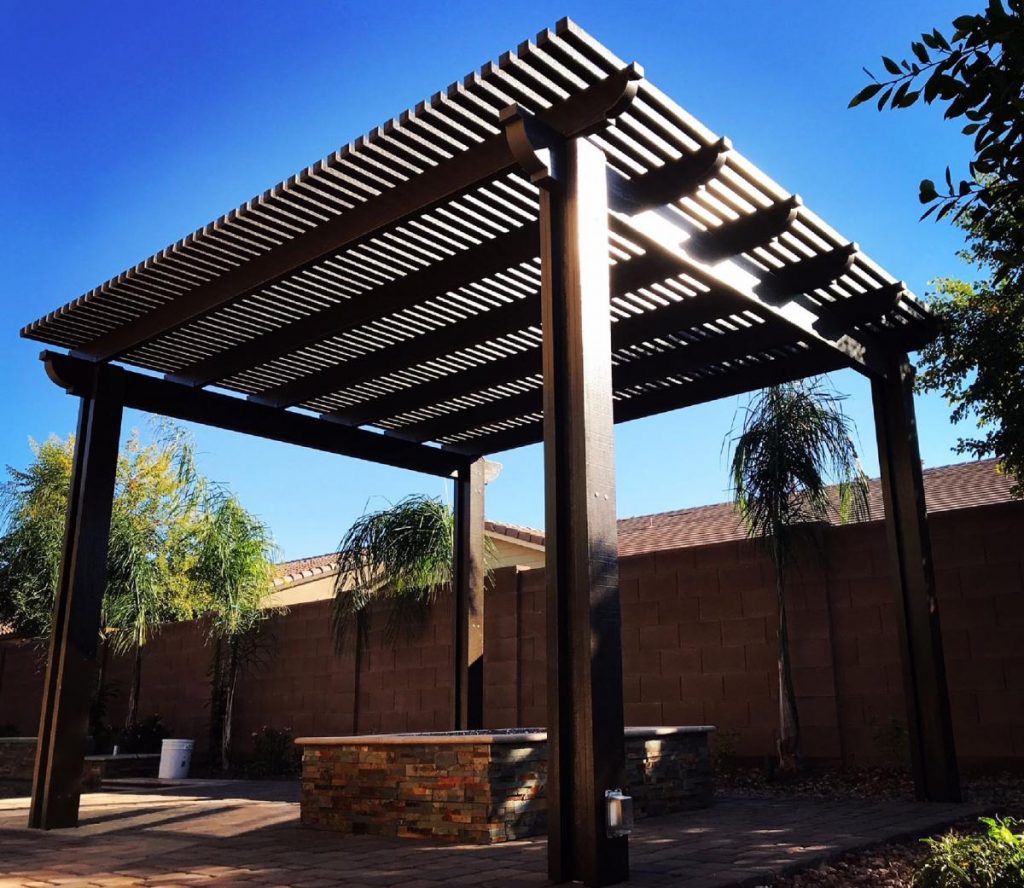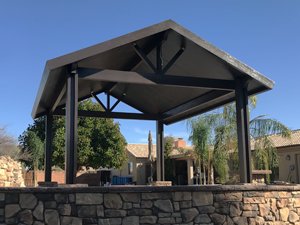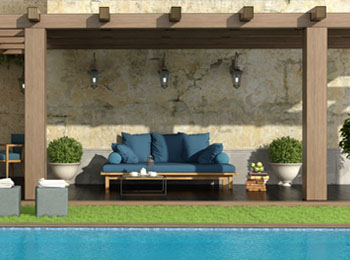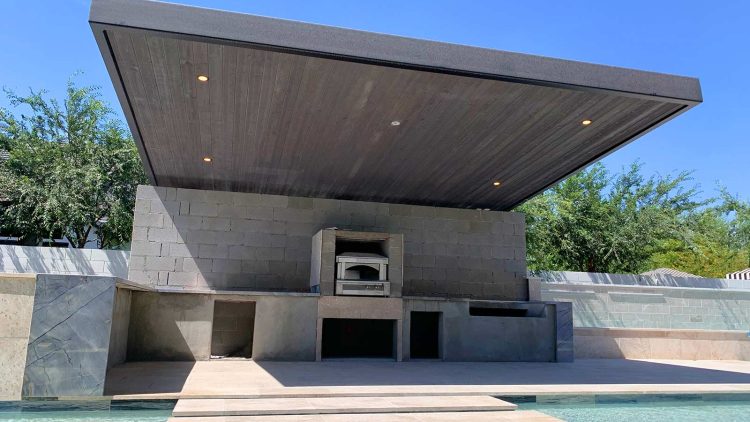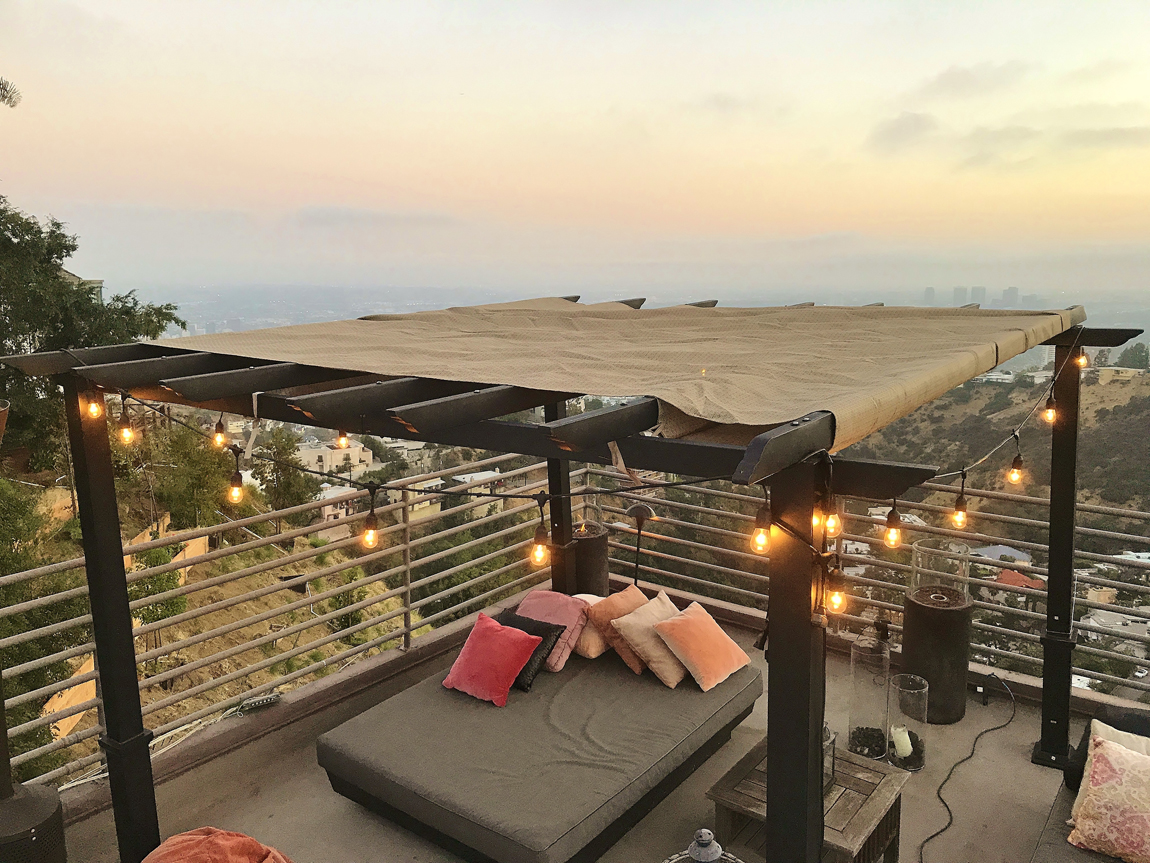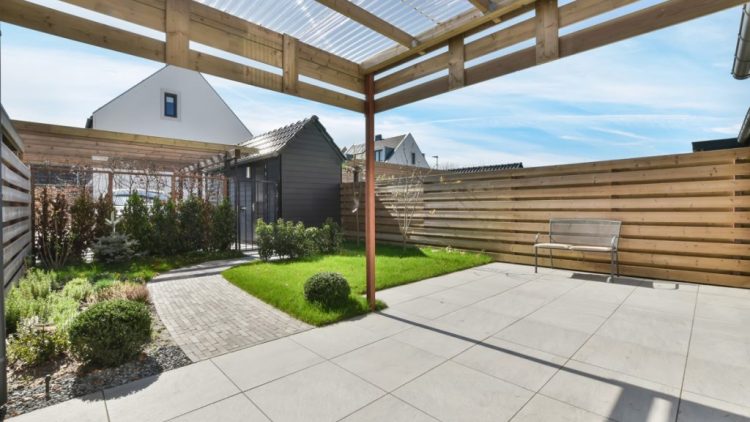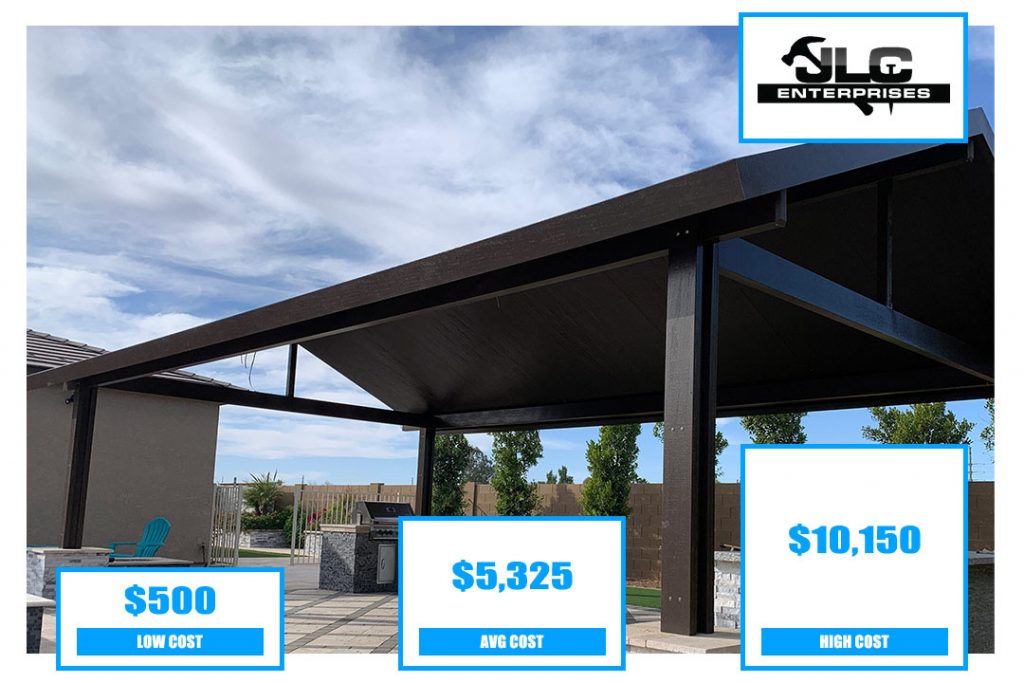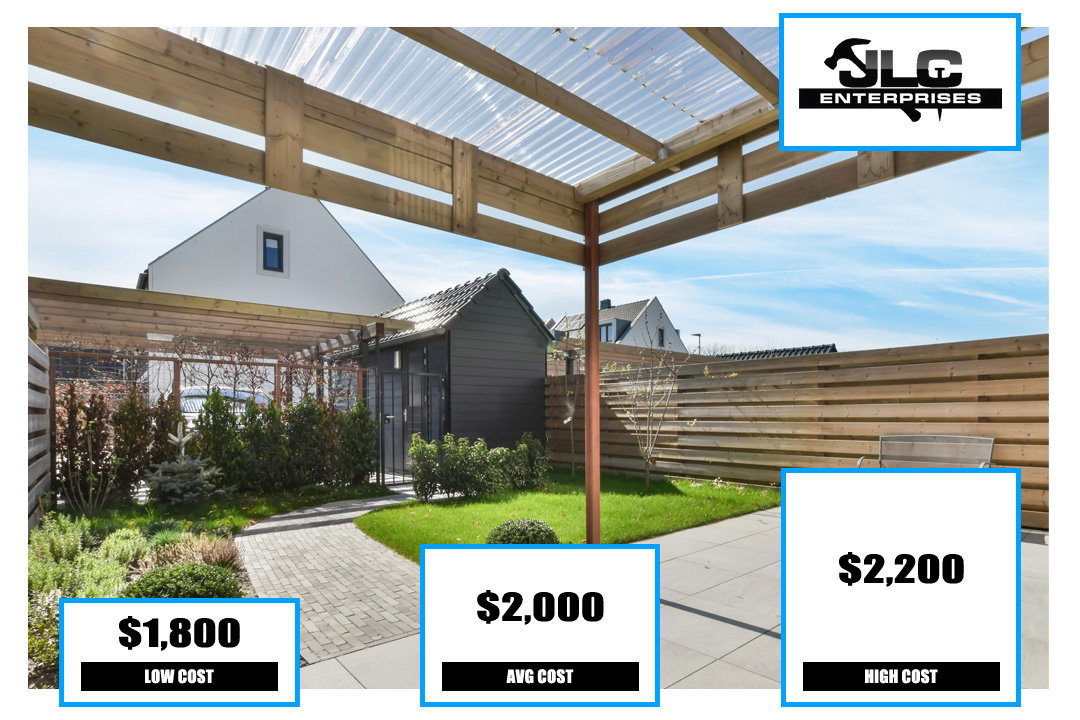Wood Vs Aluminum Pergola
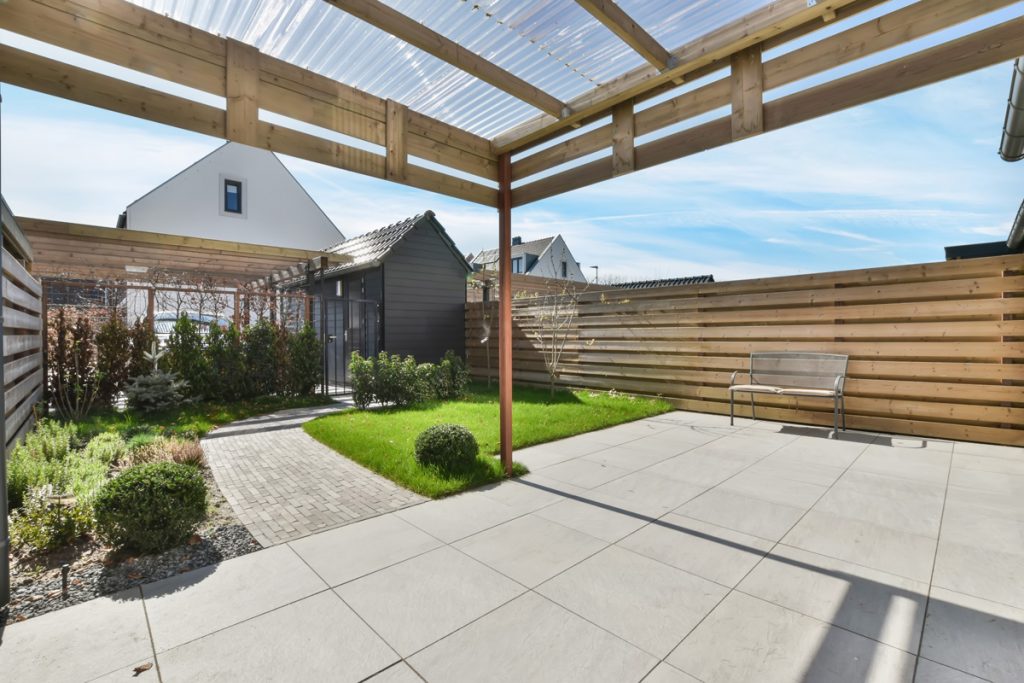
Pergola installations continue to rise throughout the country for both residential and commercial properties. So, which material option should you choose for your structure – wood or aluminum? Let’s look at the similarities, differences, and associated benefits of each type of material.
What To Know About Wood Pergolas
Because pergolas have been around since as early as the 1640’s, they were constructed out of wood due to necessity back then. As the years went by, these structures changed in almost every way, from material to style.
Even while still often made of wood, these pergolas are now sturdier and can be designed to be freestanding. Other pergola options can also be attached to homes and buildings.
Wood pergolas can be beautiful structures, cut and carved to each homeowner’s liking. They come in a variety of shapes and can be stained or painted in many different colors and finishes. There are several pieces of wood that can be used for the installation of these pergolas.
Wood Pergola Pros
Wood not only gives off an appearance of beauty, but it also gives one a feeling that is extremely difficult to convey.
Wood also has a variety of different types, sizes, textures, and colors to choose from, of which all make great materials for designing and styling your home.
Wood Pergola Cons
Wood will need to be sanded and repainted on a regularly basis if you want to hang on to that gorgeous appearance. In fact, since wood patio covers will be prone to peeling, warping, and rotting, it makes it challenging to extend its life.
Wood is both beautiful and versatile, but it is not always the best material for your needs. This can be true if you happen to be constructing or planning a pergola for either urban or commercial applications.
What To Know About Aluminum Pergolas
For decades aluminum patio covers have been a common option due to it being an inexpensive option. In addition, the material is versatile. This gives a combination of both materials; you get the look of wood and a lower cost than vinyl or wood.
Not only is the price an advantage, aluminum patio covers provide weather resistance from rusting, termites, cracks, and rotting. Alumawood covers are able to be customized to match your preferences and needs. They can be installed in a popular lattice cover style, a 3-inch thick high-density insulated foam roofing system, or uninsulated roof. The cost will depend on the final systems, styles and kits used.
It is fairly simple to install these types of covers, even for homeowners that enjoy DIY projects. If a kit is purchased, covers will come with required parts for the entire installation. Of course, you have to provide the tools. With help, the average expected installation time for a 10ft x 10ft aluminum lattice cover is 8 hours.
Aluminum Pergola Pros
It is very durable, has a lower cost, with only a little upkeep needed. This material surpasses the qualifications for being lightweight, but strong.
Aluminum can provide protection against the elements without for-going comfort. This kind of material is not going to peel, warp, or become rotten. It is also a material option that is less expensive.
These pergolas are coated with a fluoropolymer finish that can last for several years. This can give your structure a bright and bold finish. It’s possible to achieve a subtle, more muted finish, as well. Either way, you will not need the same level of care or reapplication compared to wood pergolas.
Aluminum Pergola Cons
Metal makes for a great heat conductor. If your patio doors that were made from aluminum panels, it could certainly make you uncomfortable when underneath it.
Another potential con is the slight learning curve that’s involved with designing and building. If you have only worked with wood previously for DIY projects, aluminum can be quite an intimidating material to work with.
Wood Vs Aluminum Pergola Costs
The majority of high-quality aluminum pergolas will start around $7,999 for installation.
Wood pergolas do cost less than aluminum pergolas, but homeowners must be aware that this material will require more maintenance needs over time.
*These are cost estimates according to LuxuryPergola. Contact the team at JLC Enterprises for more information today!
Conclusion
More and more homeowners are choosing to add pergolas to their landscape these days. There are many benefits associated with both wood and aluminum pergolas. With aluminum structures, for instance, homeowners can count on durability and low maintenance costs, overall.
Aluminum offers increased longevity and more style options. Always consider the unique benefits of both pergola styles when choosing the right structure for your outdoor area.
JLC Offers Patio Cover Installation In Phoenix, Arizona
If your thinking about installing a patio cover in Arizona, let JLC assist! JLC offers installation of wood, alumawood, aluminum and lattice patio covers and pergolas for homeowners in Phoenix, Gilbert, Glendale, Mesa and other areas in Arizona.

